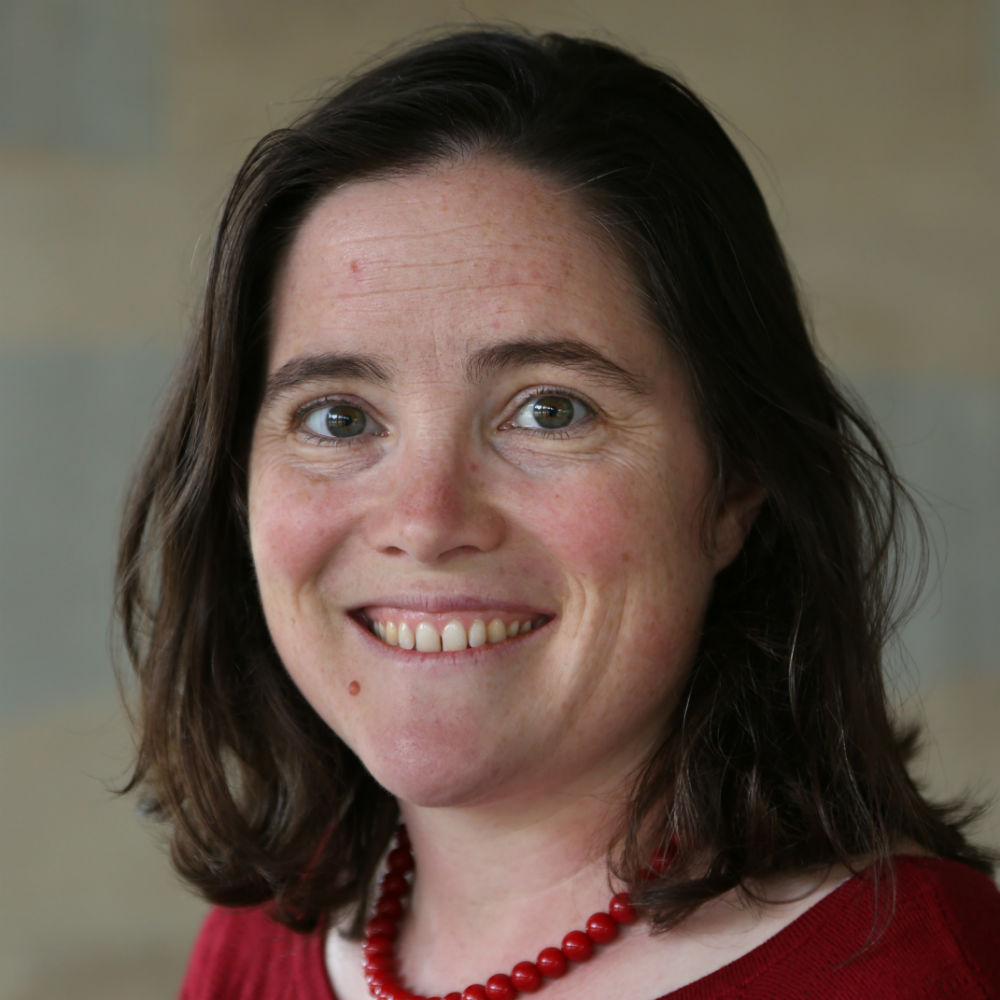Dr Anna Caute

-
Email
anna.caute@essex.ac.uk -
Telephone
+44 (0) 1206 876489
-
Location
2S2.3.04, Colchester Campus
-
Academic support hours
Tutorials are available on request- please email to arrange an appointment.
Profile
Biography
Anna joined the University of Essex in 2019 as a Lecturer in the School of Health and Social Care, in the Speech and Language Therapy (SLT) division. Anna’s main research interests are in gesture and the use of technology in aphasia therapy. Her research on assistive technology has investigated the use of e-readers, text-to-speech software and portable smart camera technologies to facilitate reading for people with aphasia, and the use of voice recognition software to facilitate writing. She has explored telerehabilitation for people with aphasia, including qualitative studies about student-led Aphasia iCafe groups and social support groups run in a virtual world. Her PhD research investigated the benefits of gesture therapy for people with severe aphasia and she has developed a novel gesture assessment, the City Gesture Checklist. Her research has been included in the 2023 NICE Stroke Rehabilitation guidelines. She is currently Chief Investigator for the HARP Aphasia Study (Harnessing Portable Smart Camera Technology to Support the Communication Skills of People with Aphasia). This study is funded by an NIHR Research for Patient Benefit grant and is exploring how smartphone apps featuring smart-camera technology can be used to enhance communication for people with aphasia who have difficulties with reading and spoken language. See further info here: https://www.essex.ac.uk/research-projects/harp-aphasia Prior to joining Essex, Anna worked as a NHS speech and language therapist in North East London and at City, University of London, in both research and teaching roles. She is a committee member of the Aphasia Therapy Clinical Excellence Network and a Fellow of the Higher Education Academy.
Qualifications
-
PhD City, University of London, (2014)
-
MSc (Speech and Language Therapy) City, University of London, (2006)
-
Postgraduate Diploma (Speech and Language Therapy) City, University of London, (2003)
-
BA (Hons) French and German University of Leeds, (1999)
Appointments
University of Essex
-
Lecturer, Speech and Language Therapy, University of Essex (23/4/2019 - present)
Research and professional activities
Research interests
Assistive technology for people with aphasia
Reading and writing impairments in aphasia
Gesture and Alternative and Augmentative Communication
Telehealth
Video conferencing, virtual reality, technology-enhanced rehabilitation.
Current research
City Gesture Checklist
Development of a novel gesture screening assessment
Qualitative evaluation of social support groups in EVA Park
Qualitative interviews exploring the acceptability of a novel group support intervention in a virtual world for people with aphasia.
More information about this project
Aphasia iCafe interview project
Collaboration with Erika Mangialardi and Annabel Kay.
Gesture assessment and therapy: an international survey of practice.
Collaboration with Dr Brielle Stark, Dr Abi Roper and Professor Lucy Dipper.
Harnessing Portable Smart Camera Technology to Support the Communication Skills of People with Aphasia (HARP Aphasia Study)
The HARP Aphasia Study started in April 2024. It is funded by an NIHR Research for Patient Benefit Grant. The project is based at North East London NHS Foundation Trust and is led by Dr Anna Caute of the University of Essex. The study will start with a scoping review of the literature about the use of portable smart-camera technology in communication disabilities and rehabilitation, followed by a market survey of commercially available apps suitable for use in healthcare. In the second phase of the study, we will work with people with aphasia and Speech and Language Therapists to develop a novel intervention. The new intervention will use existing portable smart-camera technology to enhance the communication skills of people with aphasia, targeting spoken language and reading comprehension. We will conduct a series of focus groups and workshops with people with aphasia and Speech and Language Therapists. People with aphasia will discuss ways that portable smart-camera technology could address communication difficulties and explore existing apps. They will also have the option to carry out a photo diary about their communication successes and challenges and be interviewed about their communication experiences. We will collaborate with people with aphasia and Speech and Language Therapists to develop the new intervention, which will include a therapy manual. In the final stage of the study, people with aphasia and Speech and Language Therapists will provide feedback on the manual through workshops. See further information about the project on the NIHR website: https://www.fundingawards.nihr.ac.uk/award/NIHR205350
Real world data in allied health and the pursuit of social justice and health equity- a scoping review.
Scoping review led by Katie Chadd, with Dr Anna Pettican and Professor Pamela Enderby.
Conferences and presentations
The development of a new information resource about dysphagia for people with aphasia
British Aphasiology Society Conference, 2024, Leicester, United Kingdom, 18/9/2024
How acceptable are Aphasia iCafè interview student-led online social support groups?
East of England Stroke Forum, 19/9/2023
Teaching and supervision
Current teaching responsibilities
-
Identification of Acquired Communication Abilities and Difficulties (HS232)
-
Dysphagia (HS233)
-
Enhancing Communication for People with Developmental & Acquired Communication Difficulties (HS331)
-
Speech and Language Therapy - Paediatrics 1 (HS831)
-
Speech and Language Therapy - Paediatrics 4 (HS834)
-
Speech and Language Therapy - Adults 1 (HS836)
-
Speech and Language Therapy - Adults 3 (HS838)
-
Using Evidence in Health Care Practice (HS858)
-
Typical Development Across the Lifespan (HS135)
-
Speech and Language Therapy Foundation Studies 1 (HS830)
-
Speech and Language Therapy - Adults 2 (HS837)
-
Person-Centred Care 1 (HS184)
-
Dysphagia 2 (HS333)
-
Speech and Language Therapy - Adults 4 (HS839)
-
Advancing Professional Practice in Occupational Therapy (HS894)
Publications
Journal articles (19)
Caute, A., Cruice, M., Devane, N., Patel, A., Roper, A., Talbot, R., Wilson, S. and Marshall, J., Delivering group support for people with aphasia in a virtual world: experiences of service providers. Disability and Rehabilitation, 1-19
Caute, A., Roper, A., Dipper, L. and Stark, B., (2025). Assessment and treatment of gesture in neurogenic communication disorders: an international survey of practice. International Journal of Language and Communication Disorders. 60 (1), e13136-
Chadd, K., Caute, A., Pettican, A. and Enderby, P., (2025). Operationalising routinely collected patient data in research to further the pursuit of social justice and health equity: a team-based scoping review. BMC Medical Research Methodology. 25 (1), 14-
Chadd, K., Caute, A., Pettican, A. and Enderby, P., (2024). Methods to advance health equity and social justice in healthcare: Protocol for a scoping review on the utilisation of routinely collected data. PLOS ONE. 19 (7), e0306786-e0306786
Caute, A., Cruice, M., Devane, N., Patel, A., Roper, A., Talbot, R., Wilson, S. and Marshall, J., (2022). Delivering group support for people with aphasia in a virtual world: experiences of service providers.. Disability and Rehabilitation. 44 (26), 8264-8282
Cruice, M., Woolf, C., Caute, A., Monnelly, K., Wilson, S. and Marshall, J., (2021). Preliminary outcomes from a pilot study of personalised online supported conversation for participation intervention for people with Aphasia. Aphasiology. 35 (10), 1293-1317
Caute, A., Dipper, L. and Roper, A., (2021). The City Gesture Checklist: The development of a novel gesture assessment. International Journal of Language and Communication Disorders. 56 (1), 20-35
Bacon, K., Marshall, J., Caute, A., Monnelly, K., Cruice, M., Moutou, C. and Woolf, C., (2021). Treatment fidelity of technology-enhanced reading therapy (CommuniCATE) for people with aphasia. International Journal of Language and Communication Disorders. 56 (6), 1114-1131
Marshall, J., Devane, N., Talbot, R., Caute, A., Cruice, M., Hilari, K., MacKenzie, G., Maguire, K., Patel, A., Roper, A. and Wilson, S., (2020). A randomised trial of social support group intervention for people with aphasia: A Novel application of virtual reality. PLoS One. 15 (9), e0239715-e0239715
Marshall, J., Caute, A., Chadd, K., Cruice, M., Monnelly, K., Wilson, S. and Woolf, C., (2019). Technology-enhanced writing therapy for people with aphasia: results of a quasi-randomized waitlist controlled study. International Journal of Language and Communication Disorders. 54 (2), 203-220
Caute, A., (2019). The use of technology to facilitate writing in aphasia. Revue de Neuropsychologie. 11 (3), 209-213
Caute, A., Woolf, C., Wilson, S., Stokes, C., Monnelly, K., Cruice, M., Bacon, K. and Marshall, J., (2019). Technology‐enhanced reading therapy for people with aphasia: findings from a quasi‐randomized waitlist controlled study. Journal of Speech, Language, and Hearing Research. 62 (12), 4382-4416
Caute, A., Cruice, M., Marshall, J., Monnelly, K., Wilson, S. and Woolf, C., (2018). Assistive technology approaches to reading therapy for people with acquired dyslexia. Aphasiology. 32 (sup1), 40-42
Woolf, C., Caute, A., Haigh, Z., Galliers, J., Wilson, S., Kessie, A., Hirani, S., Hegarty, B. and Marshall, J., (2016). A comparison of remote therapy, face to face therapy and an attention control intervention for people with aphasia: a quasi-randomised controlled feasibility study. Clinical Rehabilitation. 30 (4), 359-373
Caute, A. and Woolf, C., (2016). Using voice recognition software to improve communicative writing and social participation in an individual with severe acquired dysgraphia: an experimental single-case therapy study. Aphasiology. 30 (2-3), 1-24
Caute, A., Cruice, M., Friede, A., Galliers, J., Dickinson, T., Green, R. and Woolf, C., (2016). Rekindling the love of books – a pilot project exploring whether e-readers help people to read again after a stroke. Aphasiology. 30 (2-3), 1-30
Caute, A., Pring, T., Cocks, N., Cruice, M., Best, W. and Marshall, J., (2013). Enhancing Communication Through Gesture and Naming Therapy. Journal of Speech, Language, and Hearing Research. 56 (1), 337-351
Caute, A., Northcott, S., Clarkson, L., Pring, T. and Hilari, K., (2012). Does mode of administration affect health-related quality-of-life outcomes after stroke?. International Journal of Speech-Language Pathology. 14 (4), 329-337
Marshall, J., Best, W., Cocks, N., Cruice, M., Pring, T., Bulcock, G., Creek, G., Eales, N., Mummery, AL., Matthews, N. and Caute, A., (2012). Gesture and Naming Therapy for People With Severe Aphasia: A Group Study. Journal of Speech, Language, and Hearing Research. 55 (3), 726-738
Conferences (3)
Roper, A., Wilson, S., Devane, N., Talbot, R., Caute, A., Cruice, M., Ozolina, S. and Marshall, J., Connection and Cohesion in a Co-designed Virtual World: Experience of Online Aphasia Groups
Caute, A., Mangialardi, E. and Kay, A., (2023). Aphasia iCafe interview project: Student-delivered online social support groups for people with aphasia and/or dysarthria- a qualitative investigation of group members' and providers' experiences
Chadd, K., Caute, A., Marshall, J., Monnelly, K. and Woolf, C., (2017). Functional assessment & therapy for acquired writing impairment in aphrasia after stroke using mainstream technology
Other (1)
Caute, A., Cruice, M., Marshall, J., Monnelly, K., Wilson, S., Woolf, C., Stokes, C., Maran, L. and Rossiter, C., (2019).Integrate, CommuniCATE. Bulletin of the Royal College of Speech and Language Therapists
Grants and funding
2024
Harnessing portable smart-camera technology (p-SCT) to support the communication skills of people with aphasia
National Institute for Health Research
2023
Customised metaverse as virtual space for young autistic adults
University of Essex (QR Impact Fund)
2021
Aphasia iCaf� interview project: Student-delivered online social support groups for people with aphasia and/or dysarthria- a qualitative investigation of members� and providers� experiences
British Aphasiology Society
Contact
Academic support hours:
Tutorials are available on request- please email to arrange an appointment.
Follow me on social media



